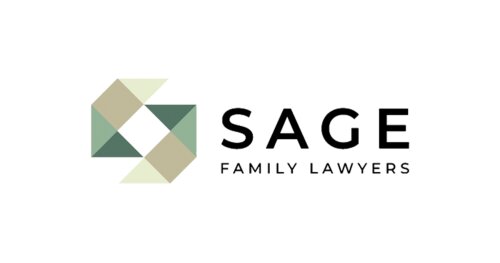Best Class Action Lawyers in Melbourne
Share your needs with us, get contacted by law firms.
Free. Takes 2 min.
List of the best lawyers in Melbourne, Australia
About Class Action Law in Melbourne, Australia
In Melbourne, Australia, a class action is a legal proceeding where one or more plaintiffs bring a lawsuit on behalf of a larger group, or "class," of people who are similarly affected. This legal mechanism is designed to increase efficiency in the judicial process by allowing a collective claim that might otherwise go unheard due to the individual claims being too small to justify separate actions. Class actions cover a variety of issues, including consumer rights, product liability, environmental protection, and shareholder and investor claims. They provide an opportunity for group members to claim compensation where many are affected by the same issue.
Why You May Need a Lawyer
If you find yourself affected by a large-scale issue that impacts many people, such as a defective product, misleading conduct, or environmental damage, a class action could be the appropriate legal mechanism for seeking compensation or remedial action. A lawyer experienced in class action law can help assess the viability of a class action, advise on possible claims, and manage the complexities of a large-scale lawsuit. Additionally, if you are part of a group wishing to defend against a class action, having legal representation is crucial to navigate the legal proceedings and to formulate effective legal strategies.
Local Laws Overview
In Melbourne, class actions are governed under the Federal Court of Australia Act 1976 and state-specific legislation, such as the Supreme Court Act 1986 in Victoria. A class action can be commenced if at least seven people have similar claims against the same defendant. The lead plaintiff, or "representative party," represents the group's interests. Usually, the lawyers operate on a "no win, no fee" basis, but any settlement or award must be approved by the court to ensure fairness to all class members. Recent reforms have also seen discussions around regulating litigation funding and managing conflicts of interests among plaintiffs and funders.
Frequently Asked Questions
What is the role of the lead plaintiff in a class action?
The lead plaintiff acts on behalf of all class members and is responsible for instructing the lawyers and making decisions about the conduct of the proceedings. They must be committed to acting in the best interests of the group.
Do I need to pay legal fees upfront in a class action?
Typically, class action lawyers work on a "no win, no fee" basis, meaning you do not pay any legal fees upfront. However, if the case is successful, legal costs are usually deducted from the settlement or damages awarded.
How do I know if I am part of a class action?
Notices are generally issued to inform potential class members about the lawsuit. You can also check with relevant law firms or legal publications. If you're unsure, seek advice from a lawyer who specializes in class actions.
Can I opt out of a class action?
Yes, class members are typically given an opportunity to opt out of the proceedings within a specified period. Opting out means you are not bound by the outcome and can pursue your own separate claim.
How long does it take for a class action to be resolved?
Class actions can be lengthy and complex, often taking several years to resolve. The duration depends on the specific circumstances, including the nature of the case, the number of parties involved, and court schedules.
What happens if a class action settles out of court?
If a settlement is reached, it must be approved by the court. This ensures the settlement is fair and adequate for all class members. Once approved, the settlement generally binds all members who have not opted out.
Is participation in a class action mandatory?
No, participation is not mandatory. If you are identified as a class member, you can choose to opt out. Conversely, if you wish to participate, you need to ensure you do not miss the deadlines for joining or registering for the action.
Are class action settlements taxable in Australia?
Tax implications depend on the nature of the compensation. It is advisable to seek tax advice or consult with a solicitor to understand how a settlement may affect your particular situation.
Can class actions be funded by third parties?
Yes, litigation funding by third parties is common in class actions. These funders cover legal costs in exchange for a portion of any settlement or damages awarded. Such arrangements are subject to scrutiny to avoid conflicts of interest.
What if I disagree with the outcome of a class action?
If you disagree, you generally have little recourse, especially if you did not opt out of the class action. This is why it is crucial to actively engage throughout the process and express concerns to your legal representatives.
Additional Resources
For those seeking more information, consider reaching out to the following resources:
- The Law Institute of Victoria - offers guidance and a directory of legal practitioners.
- Victoria Legal Aid - provides free legal information and assistance.
- Consumer Affairs Victoria - helps with consumer rights issues.
- Australian Competition and Consumer Commission (ACCC) - focuses on consumer law and anti-competitive practices.
Next Steps
If you believe you have a class action claim or are impacted by one, it's important to take the following steps:
- Consult with a legal practitioner who specializes in class actions to evaluate your case and understand your options.
- Gather relevant documentation and evidence that supports your claim.
- Register your interest or claim with the legal firm handling the class action if awareness notices have been given.
- Stay informed and attend meetings, follow court dates, and respond promptly to any requests from your legal team.
Lawzana helps you find the best lawyers and law firms in Melbourne through a curated and pre-screened list of qualified legal professionals. Our platform offers rankings and detailed profiles of attorneys and law firms, allowing you to compare based on practice areas, including Class Action, experience, and client feedback.
Each profile includes a description of the firm's areas of practice, client reviews, team members and partners, year of establishment, spoken languages, office locations, contact information, social media presence, and any published articles or resources. Most firms on our platform speak English and are experienced in both local and international legal matters.
Get a quote from top-rated law firms in Melbourne, Australia — quickly, securely, and without unnecessary hassle.
Disclaimer:
The information provided on this page is for general informational purposes only and does not constitute legal advice. While we strive to ensure the accuracy and relevance of the content, legal information may change over time, and interpretations of the law can vary. You should always consult with a qualified legal professional for advice specific to your situation.
We disclaim all liability for actions taken or not taken based on the content of this page. If you believe any information is incorrect or outdated, please contact us, and we will review and update it where appropriate.














